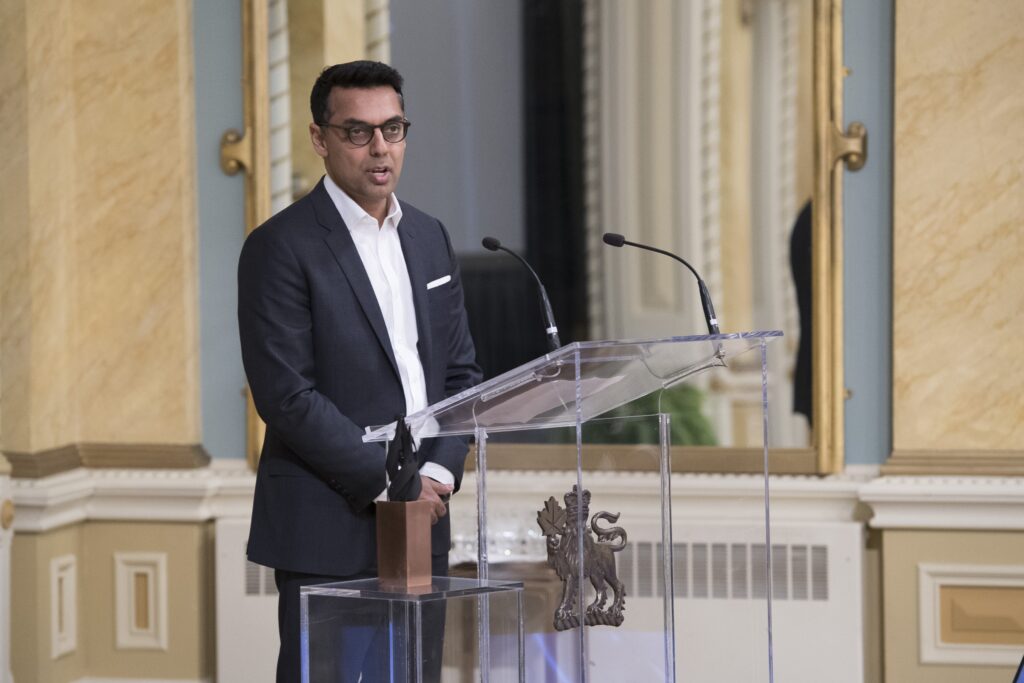Latest News
- "Direct Kenora-Thunder Bay flight to launch from January 15th"
- Ingonish fishermen concerned about the impact of sewage discharge on livelihoods and crab fishing
- Liberals support removal of religious exemption from hate speech laws
- Shai Giljos-Alexander named Canadian Athlete of the Year for second time
- Controlled suspension of Air Transat flights begins
Latest Ads
-
Jasmine Jewel
Call
-
Omidan group
Call
-
Amir Madanpour
Call
-
Dimo studio
Call
-
Yorkacademy
Call
-
Maryambagheri
Call
-
Shishlix Restaurant
Call

Can artificial intelligence predict the world's next pandemic?
It is interesting to know that according to the report of one of the Canadian scientific centers, the Bluetooth information platform was the program that was able to identify the Covid-19 virus in the world before doctors and scientists, which is why scientists say that artificial intelligence may be effective in diagnosing future epidemics.
As artificial intelligence (AI) has been used to detect and warn people about the latest pandemic, but if there are ways to manage the technology, the founder of a Canadian company that was among the first to detect Covid-19 says Don't come, the same technology can lead to the spread of false information.
Dr. Kamran Khan, an infectious disease specialist and founder of the BlueDot information platform, says: "As doctors, scientists and policymakers see the best use of AI to help track potential future pandemics, the first step is to ensure Let's make sure that we don't cause any possible damage in this way."
Khan warns that large-scale language models (LLMs), which are basically algorithms that can take huge sets of data into account to predict and generate texts, can be prone to creating "illusions," or making things fake.
Using artificial intelligence to predict emerging diseases
Much has been written about the benefits of artificial intelligence, including the fact that this technology can help identify an emerging disease and send early warning signals at high speed.
Khan says that his purpose in establishing Bludat was to feel the need to respond quickly and accurately to the emergency situations of infectious diseases in the society, and sometimes it is necessary to use methods that are not necessarily possible to implement in the academic field.
"We need to use the latest technologies and innovation to overcome this problem, which is not just for Canada, but really for the whole world," he says.
The Organization for Economic Co-operation and Development said in April 2020 that while AI is not a "miracle panacea", policymakers should encourage the world to share medical, molecular and scientific data to help AI researchers Build tools that help the medical community and make AI systems more reliable.
Zahra Shakri, assistant professor of health informatics and information visualization at the University of Toronto, told CBC: "Instead of manually analyzing, starting to label data, or spending time integrating data from different sources, artificial intelligence modules can process data and produce clearer information for decision makers in these fields.
Shakri, who is a member of the T's Epidemiology Institute and director of the High School Lab, adds that while AI can help improve the preparedness and resilience of the health care system, it cannot be the only tool we can use to achieve the bottom line.
According to him, generative AI models work by trying to detect relationships between words and are not always faithful to the facts and can also share false information.
One of the solutions to deal with this problem can be to get help from experts in different fields to understand what information is true so that artificial intelligence models can better recognize false information. Increasing public awareness about the possible harms of information generated by artificial intelligence can also help.
But "Shakri" says that like the era of the rise of nuclear energy, leaders, rulers, researchers, policymakers and more stakeholders from different sectors should come together to address this issue and its challenges.
It may seem very simple to talk about these concepts, but when it comes to implementing solutions, the need for more expertise and support is felt. Also, an integrated combination of experts who understand the problem can be useful.
"For example, as a doctor, I am an epidemiologist," says Shakri. "We have other experts working in veterinary medicine, others working in public health, and medicine and therapeutics need to work with data scientists, machine learning experts and engineers who are developing new technologies to create the infrastructure."
Suggested Content
Latest Blog
Login first to rate.
Express your opinion
Login first to submit a comment.
No comments yet.


































